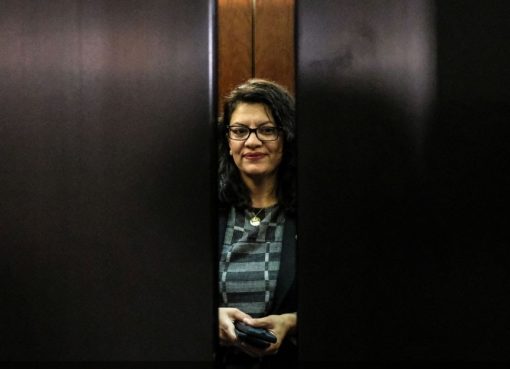Disclosure: The views and opinions expressed here belong solely to the author and do not represent the views and opinions of crypto.news’ editorial.
It’s been an “exceptionally eventful month” for Bitcoin (BTC). BTC whale transactions reached a four-month high while the market “purged” short-term holders. The unrealized losses for speculators touched crypto assets worth millions of US dollars. Such wipeouts reiterate the pressing need to foster long-term adoption.
Meanwhile, investors are ‘buying the dip,’ and spot Bitcoin ETFs recorded some of the highest single-day inflows.
So, the short-term bleeding and apparent mayhem coexist with overall bullishness and demand. And as David Canellis of Blockworks recently wrote:
“…We may be finally ready to put the worst dramas in crypto history to bed, for good.”
Rising above the typical numbers-go-higher (or lower) view, Bitcoin is experiencing a renaissance, mainly from the asset perspective: It’s outgrowing the ‘digital gold’ image and expanding on the utility front.
BTC is finally a ‘productive asset’ thanks to the evolution of Bitcoin defi, or BTCfi. Plus, Layer-2s like Stacks bring programmability to the world’s most decentralized and secure blockchain. Bitcoin is becoming the home for new-age dApps—Stacks is dominating this $1 trillion opportunity. And there’s a lesson in being early and consistent here.
Slowly at first, then all at once
Bitcoin and the economics it supports are based on the principle of low-time preference. It’s a feature, not a bug. Rome was not built in a day. But it is easy to lose sight of this reality amidst all the noise in crypto.
BTCfi started getting the hype and attention it deserves after Ordinals and BRC20 launched in 2023. They were indeed the first practical evidence that Bitcoin can be much more than a store of value. Yet the primitives for a fully functional BTCfi have been in production for much longer. Stacks launched in 2013, for instance, and created Clarity in 2021, the programming language for Bitcoin-compatible smart contracts.
More importantly, they developed the proof of transfer (PoX) consensus mechanism, enabling L2 chains to inherit Bitcoin’s security without additional energy expenditure.
These early innovations laid the foundation for the now-booming Bitcoin L2 ecosystem, which currently has over $2 billion in TVL. Nevertheless, the need to scale Bitcoin on the second layer became truly apparent only when Runes sent the network’s fees through the roof after the halving.
That’s the nature of lasting technological change. They emerge slowly at first, then all at once. And when that happens, visionaries who thanklessly build real solutions—before others even start caring—hit the home run.
Is it working or not? — That’s the question
Despite its merits, being early is not the endgame. The crypto community has seen enough lip service over the years. They want actual results now. It ultimately boils down to the question of impact, and that’s great.
Most existing Bitcoin L2s fail to solve the Impossible Trinity. They are either loosely linked to the Bitcoin L1 at best or highly centralized at worst. Only a few projects like Stacks have made the right trade-offs, even if that meant angering a few maxis. Commitment to the core Bitcoin ethos separates L2s that are hosting dApps and those relying solely on marketing gimmicks or speculative price action.
Stacks took a giant leap forward in this direction with its performance-enhancing Nakamoto Release with a trustless two-way BTC pegging mechanism, a.k.a. sBTC. The impact of this move is reflected in Stacks’ growing number of monthly active accounts, which reached an all-time high of over 1.2 million in Q2 2024.

Moreover, Stacks currently has a TVL of over $68 million, as most of the top Bitcoin dApps are building on this platform. Slowly yet steadily, they are helping improve Bitcoin’s TVL-to-market-cap ratio, which was a mere 0.2% in May 2024, vs. Ethereum’s 17%.
Alongside the evolution of Bitcoin dApps, top VCs and investors are backing the production of AI-powered interoperability and bridging solutions. These tools will further improve Bitcoin’s liquidity situation. AI Agents, for example, will allow users to seamlessly move funds to the Bitcoin ecosystem even without complex technical understanding or know-how. This means they can better integrate Bitcoin dApps into their workflows while simultaneously benefitting from other chains.
It won’t be a zero-sum game anymore, which is great for holistic growth. Given such developments, the next ‘defi Summer’ on Bitcoin is a tangible, almost imminent reality. It’s no longer an optimist’s fantasy.
BTCfi has found its inflection drivers, and it can soon become at least as big as defi on Ethereum. Ideally, though, it can be way bigger thanks to Bitcoin’s over 54% market dominance.
The biggest appeal of BTCfi innovations is that they primarily enhance and expand the underlying native asset. It is not a zero-sum game where projects extract the maximum value at the cost of end-users and devs.
Rather, it’s a collective effort to ensure grassroots empowerment and financial freedom. Bitcoin-based dApps are the means to a greater end. They represent a philosophy where tech becomes the engine for individual sovereignty and freedom, not just an enabler of selfish, short-term gains. It’s a question of bringing meaningful change to the lives of the next one billion crypto users and beyond. That will lead to a better world, financially and otherwise.




